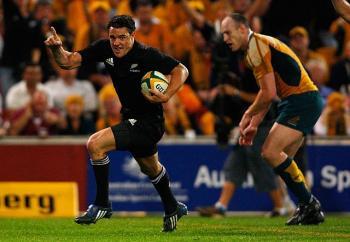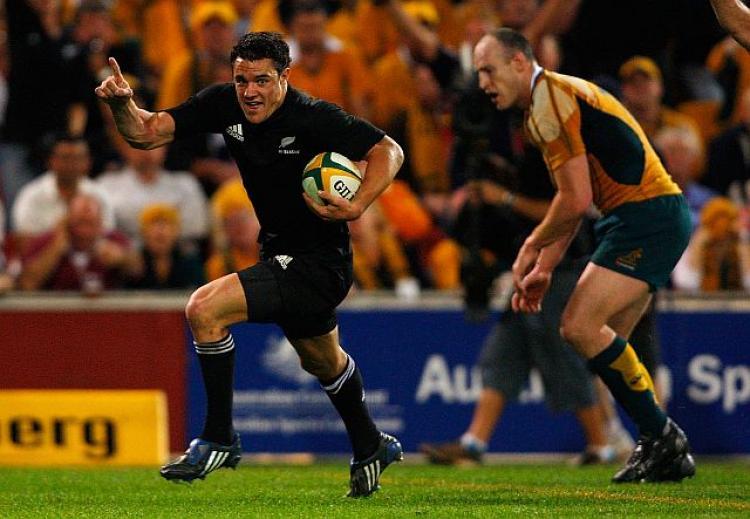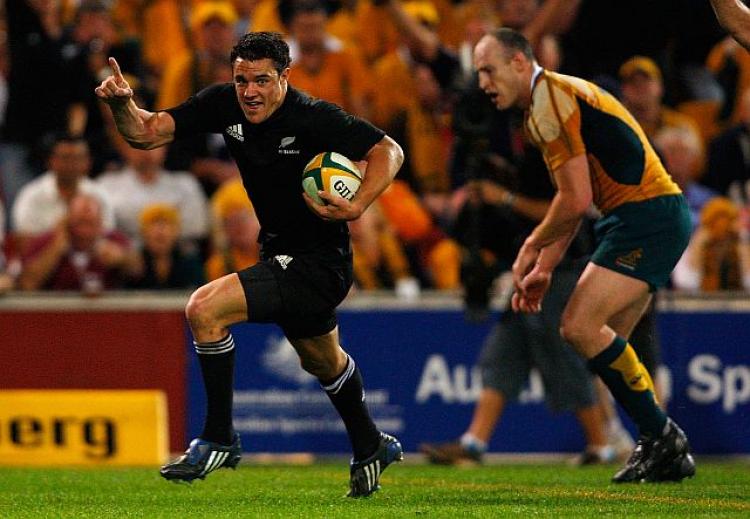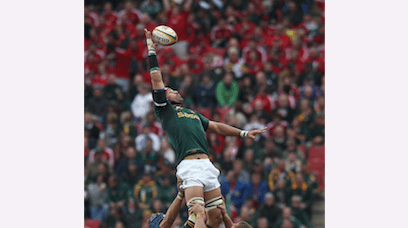The All Blacks reasserted their dominance of southern hemisphere rugby by defeating the Wallabies 28–24 in Brisbane on Saturday night, taking both the Tri-Nations title and the Bledisloe Cup.
While the Australians had the opportunity to steal the match in the closing minutes, the New Zealanders were more disciplined throughout and deserved their victory. Both teams are rebuilding, but both made a welcome return to type in the match – the Wallabies were adventurous, the All Blacks controlled.
Saying that, the pace was furious, with aggressive defence and attack from both sides. However, the Wallabies faltered under the constant pressure and made too many mistakes.
Carter & Giteau
The game could be personified by the two backline play-makers, the two flyhalfs – the great Dan Carter for New Zealand and the brilliant Matt Giteau for Australia. Both have breathtaking personal skills and both can beat opponents with flair, guile and speed. However, Giteau makes occasional mistakes, which Carter rarely does – and Giteau tends to confront the opposition personally, while Carter is more strategic.
Essentially, in military terms, Giteau is the general who leads his troops from the trenches, while Carter tends to plan the war from the bunker. Again, this personifies the approach of the two nations – the Wallabies thrill their fans with flair, while the All Blacks reward their fans with pragmatic victories.
The other team in the Tri-Nations, South Africa, takes a brutal approach, which has proven somewhat limited in the high-paced, modern game. Still, they won the World Cup in France last year, so they can make it work. This year, under their new coach, Peter de Villiers – the first black Springboks coach – they have tried to master the running game, so they too are rebuilding.
McCaw flawless
From another perspective, the Brisbane victory could be personified by one player, the All Blacks openside flanker Richie McCaw. He is an outstanding captain, who, like Giteau, leads from the heart of the fray, where his skills are unmatched. He may be the best rugby player ever – if not, he’s certainly one player the Kiwis can’t do without.
He was injured early in the Tri-Nations and the All Blacks lost to both the Wallabies and the Springboks in his absence.
For the Wallabies, two new players came of age – combative lock James Horwill and the fullback Adam Ashley-Cooper. Both realised their potential using contrasting methods – Horwill controlled his aggression, while Ashley-Cooper unleashed his. Both scored tries.
The All Blacks centre pairing of Conrad Smith and Ma’a Nonu was solid, if not spectacular. They are often targeted as a weak link, particularly Nonu, who is considered to be aggressively one-dimensional. However, this season they have been consistent – and seem destined for greater things.
Finally, we come to the coaches. Both are New Zealanders – and both sought the All Blacks job this year. When Graham Henry won the position, Robbie Deans was snapped up by the Australians.
Now, Henry has won everything – the All Blacks coaching job, the Tri-Nations and the Bledisloe Cup (the prize for trans-Tasman Ocean clashes). And yet he is widely criticised in New Zealand. Deans lost everything, yet he is the golden boy in Australia.
These illogical conclusions appear to make perfect sense, showing the difference between reality and perception.






